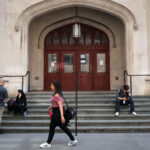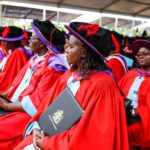
STEM (Science, Technology, Engineering and Mathematics) is no longer the major driving force behind K12 education.
A growing number of schools are now incorporating teaching methods that are more in line with STEAM education (Science, Tech, Engineering, Arts and Mathematics) as it has become clear that arts education makes learning more fun and keeps children more engaged.
According to AllEducationSchools, “STEAM aims to strengthen the foundation of STEM by helping students enhance their critical thinking skills and recognize the intersection of art, science, technology, engineering, and math.
“It gives students tools and methods to explore new and creative ways of problem-solving, displaying data, innovating, and linking multiple fields. The arts and STEM subjects naturally complement and inform each other, so implementing STEAM principles into education allows for more understanding, innovation and a cohesive education in the classroom.”
Arts education also helps students learn transferrable skills, also known as 21st century skills. These skills include creativity and critical thinking skills, curiosity, resilience, problem-solving, resourcefulness, collaboration and confidence.

Source: Nord Anglia International School, Hong Kong
STEAM learning is crucial to developing the next generation as they will need these transferrable skills when they enter the workforce.
Whether or not they become engineers, designers or analysts, STEAM education helps students of all backgrounds develop innovative mindsets with the ability to create and think creatively.
Offering STEAM education through interdisciplinary approaches
Nord Anglia International School in Hong Kong is preparing students for this through a collaboration with the Massachusetts Institute of Technology (MIT), bringing a new approach to learning the interdisciplinary subjects of STEAM education
As a progressive-minded school focused on developing students for the future, the collaboration with MIT is just one way that Nord Anglia International School in Hong Kong is engaging children.
Every spring term, Nord Anglia students visit MIT where they are immersed in hands-on problem solving, preparing them for university life and beyond.
Students meet leading MIT scientists who serve as inspirational figures, as well as build and experiment in workshops, learning about the latest technologies and discoveries to pique their interests and imagination.

Source: Nord Anglia International School, Hong Kong
From bioengineering to coding and building robots, students thoroughly enjoy and learn from these activities tied to STEAM education. And to keep students actively involved in STEAM, teachers participate in workshops where they learn the latest STEAM research and teaching approaches.
Every summer, teachers visit MIT where they receive hands-on training from MIT researchers and renowned academics, participating in discussions and workshops with leading engineers and scientists about cutting-edge topics like gaming, food production technologies and climate change.
Preparing students for university and beyond
Besides the collaboration with MIT, Nord Anglia International School also collaborates with the world-renowned Juilliard School.
Performing arts is being encouraged in schools worldwide as researchers have found it’s linked to higher academic achievement and better child development.
Furthermore, students who can express themselves creatively generally become well-rounded adults.
By incorporating the Juilliard-Nord Anglia Performing Arts Programme, the music curriculum is taken up a notch and serves as an entry point for music theory learning.

Source: Nord Anglia International School, Hong Kong
There is also the enhanced dance curriculum where students learn coordination and self-expression, as well as having the chance to move their bodies and exercise.
Through the performing arts, which are linked to STEAM education, students don’t just learn creativity but also self-confidence and presentation skills.
These are skills needed to become leaders in the future, as when students are encouraged to express themselves physically, they are able to overcome insecurities and connect with others both intellectually and emotionally.
As they also study the history of performing arts, students also master cultural awareness and appreciation, helping them develop as global citizens – another trait that’s essential to thriving in the future world of work.
As students are increasingly required to think innovatively, performing arts require students to improvise and use their bodies to create in the moment which helps them think out-of-the-box and stretch the limits of their imagination.

Source: Nord Anglia International School, Hong Kong
Plus, they gain a habit of being active when they’re exposed to the performing arts, which is more likely to turn into a lifelong practice of being healthy and making positive lifestyle choices.
Studies have also shown that there are improved academic outcomes when music and arts education is part of the curriculum, as children become more proficient in reading, writing and mathematics.
Nord Anglia International School Hong Kong is an excellent example of a forward-thinking school that’s arming students with 21st century skills through STEAM education.
Interested to learn more? The school is opening its doors to welcome parents and their children to explore the campuses, outstanding facilities and unique learning spaces.
You’ll also get the opportunity to meet the UK-qualified staff, as well as talk to current students and find out what it’s really like to study at NAIS!
The Nord Anglia International School Hong Kong Open Day will be held on Saturday 26th October 2019 from 9:00am to 12:00nn for Sai Kung & Tai Tam branch, and 9th November 2019 from 9:30am to 12:30pm for the Lam Tin branch. Register your attendance here.
Follow Nord Anglia International School on Facebook, Twitter, YouTube and Instagram
Liked this? Then you’ll love these…
How does BIS HCMC transform students into global citizens?
International schools that prepare students for the globalised economy







